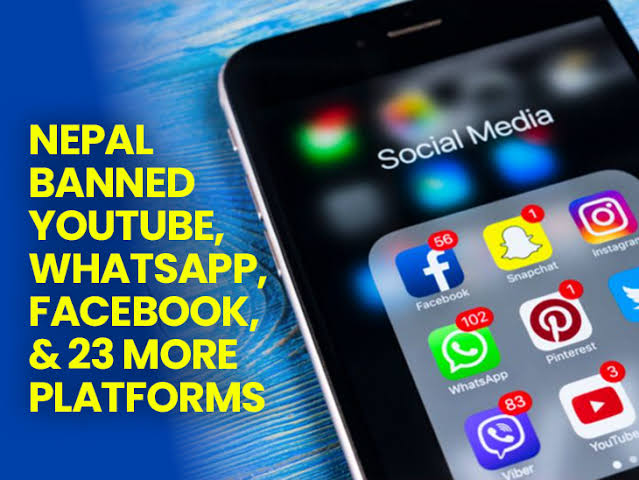 Image Source: Bhaskar English
Image Source: Bhaskar English
In a sweeping move that has stunned citizens and digital rights advocates alike, the Government of Nepal has imposed a nationwide ban on 26 major social media and communication platforms, including Facebook, WhatsApp, Instagram, X (formerly Twitter), YouTube, LinkedIn, Reddit, and Snapchat. The decision, announced on September 4, 2025, follows a Supreme Court directive and a government deadline requiring all domestic and foreign-origin platforms to register with Nepal’s Ministry of Communications and Information Technology.
The ban has triggered widespread debate over digital regulation, freedom of expression, and the future of online engagement in the Himalayan nation. Here’s a comprehensive look at what led to the shutdown and what it means for Nepal’s digital landscape.
What Prompted The Ban
• The Supreme Court of Nepal issued a directive in a contempt of court case, mandating that all online platforms must register with the government before operating in the country.
• The Ministry of Communications and Information Technology published a public notice on August 28, giving platforms a seven-day deadline to comply with the Directive on Regulating the Use of Social Media, 2080.
• The directive requires platforms to register, appoint a local contact person and compliance officer, and establish systems to handle local complaints.
• None of the 26 platforms met the deadline, prompting the government to instruct internet service providers to block access until registration is completed.
Platforms That Are Now Inaccessible
Among the blocked platforms are:
• Facebook, Instagram, Messenger, WhatsApp, YouTube, X, Reddit, LinkedIn
• Discord, Pinterest, Signal, Threads, WeChat, Quora, Tumblr, Clubhouse
• Rumble, Line, Imo, Jalo, Sol, Hamro Patro, Mi Video, Mi Vike
However, a few platforms remain operational, including TikTok, Viber, Wetalk, Nimbuzz (already registered), Telegram, and Global Diary (in process).
Government’s Justification And Legal Basis
Nepal’s Communications Minister Prithvi Subba Gurung stated that repeated requests were made to social media companies to register, but they were ignored. The government claims the move is necessary to regulate digital content, prevent unlicensed advertising, and ensure accountability in online operations.
The Supreme Court’s ruling was based on multiple petitions filed since 2020, which raised concerns about foreign platforms broadcasting content and ads without oversight. The Cabinet’s decision to enforce the directive marks a significant escalation in Nepal’s digital governance efforts.
Criticism And Concerns From Civil Society
1. Rights groups including the Committee to Protect Journalists and Access Now have condemned the ban, calling it overbroad censorship.
2. Critics argue that the registration requirements are overly intrusive and unrealistic, discouraging platforms from complying.
3. Ujjwal Acharya, director of the Center for Media Research, warned that the move damages Nepal’s democratic image and global reputation.
4. Free speech advocates believe the ban is less about regulation and more about silencing dissenting voices online.
The proposed Social Media Bill, currently under debate in Nepal’s parliament, could further tighten control by introducing fines and jail terms for content deemed against national interest. This has sparked additional concern among journalists and digital rights defenders.
Impact On Citizens And Businesses
The sudden blackout of widely used platforms has disrupted communication, business operations, and social engagement across Nepal. Small businesses that rely on social media for marketing and customer interaction are facing immediate challenges. Students, freelancers, and remote workers are also affected, with many scrambling to find alternative platforms.
The government has stated that services will be restored once platforms complete the registration process. However, no timeline has been provided, and it remains unclear whether global tech giants will comply with Nepal’s demands.
Final Word
Nepal’s decision to block 26 social media platforms marks a turning point in its digital policy. While the government insists it’s a regulatory necessity, critics see it as a dangerous precedent for censorship. As the debate intensifies, the future of online freedom in Nepal hangs in the balance.
Sources: MSN News, Social Samosa, The Hindu, Northeast Now.
Advertisement
Advertisement





